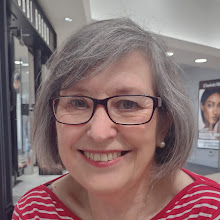Greatly looking forward to this programme on Radio 4 tomorrow- all about “Hobson-Jobson”, the legendary dictionary of British India.
In 1872, two extraordinary polymaths Henry Yule and Arthur Burnell, began corresponding with scholars, diplomats, missionaries, intelligence officers and army personnel across the globe to produce their 1000 page lexicon. The list of Indian words now in common English usage is utterly amazing…
Here are fifty to be going on with…
A - atoll, avatar
B - bandana, bangle, bazaar, Blighty, bungalow
C - cashmere, catamaran, char, cheroot, cheetah, chintz, chit, chokey, chutney, cot, cummerbund, curry
D - dinghy, doolally, dungarees
G - guru, gymkhana
H - hullabaloo
J - jodhpur, jungle, juggernaut, jute
K - khaki, kedgeree
L - loot
N - nirvana
P - pariah, pashmina, polo, pukka, pundit, purdah, pyjamas
S - sari, shampoo, shawl, swastika
T - teak, thug, toddy, typhoon
V - veranda
Y – yoga
I scanned this list and realise I have used at least half of them in the past week! I understand that In Anglo-Indian English, the term Hobson-Jobson referred to any festival or entertainment, in origin the term is a corruption by British soldiers of "Yā Ḥasan! Yā Ḥosain!" which was chanted by people in the processions. Yule and Burnell were looking for a catchy title for their dictionary and decided upon this since it was a "typical and delightful example" of the type of words in the dictionary and at also conveyed "a veiled intimation of dual authorship"
In Tom Stoppard’s play Indian Ink, two characters compete to use as many Hobson-Jobson words as possible:
Flora: "While having tiffin on the veranda of my bungalow I spilled kedgeree on my dungarees and had to go to the gymkhana in my pyjamas looking like a coolie."
Nirad: "I was buying chutney in the bazaar when a thug who had escaped from the chokey ran amok and killed a box-wallah for his loot, creating a hullabaloo and landing himself in the mulligatawny."

Mulligatawny Soup is a traditional British recipe, based on Mrs Beeton's recipe of 1861, for a classic Anglo-Indian soup of chicken or rabbit with almond paste [!] and onions in a beef stock flavoured with curry powder.
Do you have a favourite ‘imported’ word- from India, or any other nation for that matter?



This is a fab post, I love it when you do these cause I always feel like I've learnt something lol. I think it's your natural teacher instincts coming out.
ReplyDeleteIn answer to your question, I love Australian words, like Billabong and palarva lol
x x x
Dhobey-wallah!
ReplyDeleteJane x
Ps Not sure of the spelling.
Oooh ooh another one we use A LOT is punkah -wallah...again not sure of the spelling.
ReplyDeleteJane x
You've named my favorite imported Indian word--hullabaloo--I just didn't realize it was imported.
ReplyDeleteAre you familiar with the word "buckaroo"? It's another word for cowboy. Well, I just learned the other day that the origin for buckaroo is the Spanish word "vaquero," which means "man who herds cows." If you say vaquero over and over, it starts sound a lot like ... you guessed it: buckaroo. I just sorta thought that was cool.
xofrances
Lovely post and I'm really enjoying the comments, too! I remember asking a little girl at my school in Leeds what she called her bangles in her home language, and she grinned and said: 'bangla!' My husband also had a Pakistani friend who labelled a computer file 'jabba', and when Ben asked him what it meant he said, 'talk'! Now, apparantly 'jabber' is a middle English word, but I wonder?
ReplyDelete